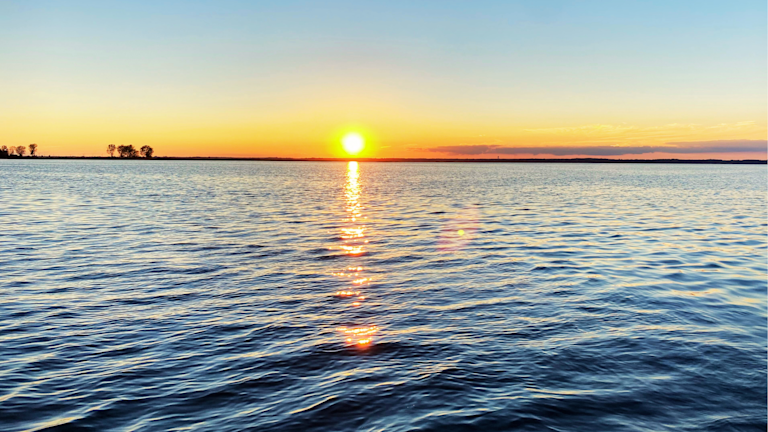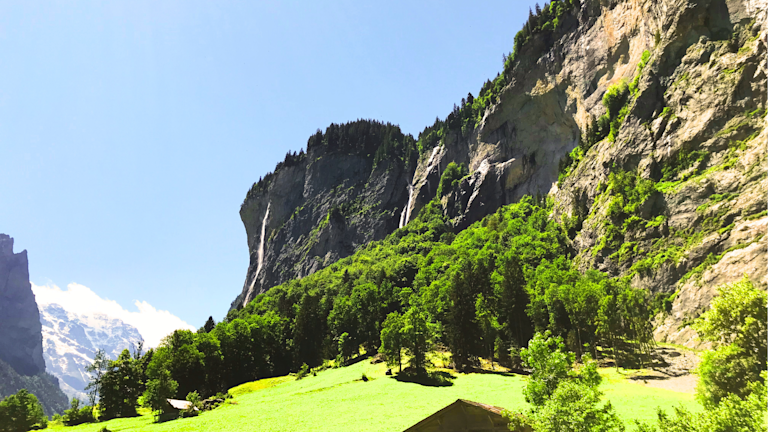May 31, 2024
If God does not exist, then what is our purpose? As I wrote in an earlier post, "Questioning Divine Necessity," according to Nietzsche, it is we who create our own meaning and purpose; this means that we acknowledge that life is essentially tragic. But can we create our own meaning and morality, apart from the affirmation of others?
What fascinated people like Nietzsche and Dostoevsky was that despite the growing secularism and atheism in the modern West, people remain passionately moral. In fact, our deepest sense of who we are and our identity is often rooted in are particular moral values and commitments. In my own way, I had been seeking for a new moral value to root my life in. I had chosen individual freedom as the highest moral good, freedom of expression, freedom to pursue my own happiness. In other words, I embraced a very modern value as the bases of my moral identity.
The great modern experiment theorizes that we can create a kind of society where each individual can decide on his or her dream, vision of meaning and fulfillment. The world is a battle of values. Today I see this played out in a German context. When I first arrived in Dortmund, I chaperoned my children with their classmates and teachers at a Friday for Future event, an ecological movement, inspired by eco-activists, such as Grete Thunberg. This generation represents a passionate moral response to the impending ecological crisis in our world.
There is a strong desire to recognize our interconnected relationship with nature and the environment. At stake is the health of our planet and not to be overly dramatic, but the future of human civilisation. The moral impulse is greater than individual freedom, but the desire for a healthy ecosystem, which when well tended, also takes care of us too.
When reflecting on destiny, is there not something that rings true here? Is not my personal destiny also not deeply connected to the life of our planet and to the human race? Are we willing to expand our moral imagination to include all life on earth, even beyond the human? Is there not something that resonates and connects too with the biblical vision of humanity to be stewards and caretakers of the creation, as divine ambassadors and representatives (Genesis 1-2)?
Communion in the Creation
In fact, my encounter with God, which I describe in "the Joy of Rebirth," helped me to appreciate life in the body more, and not scorn or curse it. Life in the body, as part of the larger creation, is a sacred gift and holy vocation. Faith in Jesus helped me to see my life in the body in a new, more mysterious light. As Dostoevsky depicts Alyosha's moment of transformation, "the silence of the earth seemed to merge with the silence of the heavens, the mystery of the earth touched the mystery of the stars . . . Alyosha stood gazing and suddenly, as if he had been cut down, threw himself to the earth" (The Brothers Karamazov, 362).
He experienced an "ecstasy for the whole," weeping in an overwhelming sense of connection and gratitude with God and the creation, "it was as if threads from all those innumerable worlds of God all came together in his soul, and it was trembling all over, "touching other worlds" (The Brothers Karamazov, 362).
Like Alyosha, I recognised my greater connectedness to the universe as a whole; not in a romantic way, but in the recognition that I am of the flesh as well as of the spirit. I am a part of the earth, but I am also connected to God. I am an individual, but also an integral member and part of the human race, in all our cultural and ethnic diversity. In Christ who has brought all things in heaven and earth together, and as children of God, we represent this sacred unity.

I remember shortly after my encounter with Jesus having this renewed attitude toward the creation. The earth and all living creatures are not just here for our use, but exist for the praise and joy of the Creator. Growing up in a hunting culture in southern Ontario, I have seen people hunt animals and birds responsibly for food. But I have also seen people do so irresponsibly. I was one of those people, who would sometimes kill animals just for sport, taking life for no use other than my own enjoyment.
In Christ, the Spirit of God transformed my attitude toward my relationship with the creation. There is a false view of the apocalyptic which suggests that because of an imminent return of Christ, the natural world is of lesser importance. It assumes that the care of creation and efforts toward sustainability are a waste of time.
On the contrary, reunion with the God of creation through Christ means renewal of the natural world itself. In fact, as Paul wrote, creation itself longs for the renewal of Christ, "but the creation itself will be set free from its bondage to corruption and obtain the freedom of the glory of the children of God" (Romans 8:21).
Jesus died on the cross to save us from the sin of a distorted and broken relationship with God, each other, and with the creation. The resurrection of Jesus means the resurrection of the people of God, but also the anticipation of the new creation. The care for the creation is an expression of this hope.
This is not a return to an ideal original state of Eden, but actually something greater. It is the destiny that God has eternally purposed for us in Christ. We are born for new creation, the new garden city of God, the new Jerusalem (Revelation 21-22).
Redeeming Middle Earth
Not only Dostoevsky, but J.R.R. Tolkien, the author of The Lording of the Rings, also understood the importance of creation in God's redemptive story. I have visited Lauterbrunnen in Switzerland, which was the inspiration of his depiction of Rivendell, a home of the immortal elves. I could see how this beautiful place, filled with waterfalls in the spring, would inspire such an awe and wonder in the beauty of creation and the desire to see it sustained and preserved.

In Tolkien's story, the one great ring must be destroyed, because it leads to the possessive desire for power and control. The evil spirit, Sauron, is a spiritual power that seeks to dominate and profit from all things living on middle earth. His empire of Mordor is a grotesque industrial machine that corrupts and destroys the earth. The elves, on the other hand, represent an embodied spiritual power that seeks to sustain and preserve nature in communion with the Creator.
Unfortunately, humans are easily tempted to follow the way of Sauron. I know I was. I compromised my responsibility as caretaker of the creation in thinking only of my own individual needs and pleasure. I was not willing to forgo my own immediate needs for the benefit of the greater whole. But there is a more authentic freedom in embracing in humility our small, but significant membership in the creation. It is Christ, who helped me catch a glimpse of this deeper membership.
When I think about our destiny and our place in the world, Dostoevsky and Tolkien remind us in their own creative ways about the importance of our relationship with one another and the creation. It is connected with our discipleship, what it means to follow Jesus.
Consider the teaching of Father Zosima as a path to fulfilling this destiny of discipleship: "Love all of God's creation, both the whole of it and every grain of sand. Love every leaf, every ray of God's light. Love animals, love plants, love each thing. If you love each thing, you will perceive the mystery of God in things . . . And you will come at last to love the whole world with an entire, universal love" (The Brothers Karamazov, 319).
The way of Jesus is a way of eternal hope with earthly implications. The way of Christ is an inner revolution, lived out in authentic, active love for one another and the creation that has the potential to transform our cultures and societies, perhaps even the potential to protect and transform nature and the creation itself.
Read Part 9: Discovering Our Voice
Go to the series: A Transfiguration in Time
Sources
Dostoevsky, Fyodor. The Brothers Karamazov. Translated by Richard Paver and Larissa Volokhonksy. New York: Vintage, 1990.
Suderman, Alex D. The Sacrament of Desire: The Poetics of Fyodor Dostoevsky and Friedrich Nietzsche in Critical Dialogue with Henri de Lubac. Eugene, OR: Pickwick Publications, 2022.
Tolkien, J.R.R. The Lord of the Rings. London, UK: HarperCollins, 2005.

